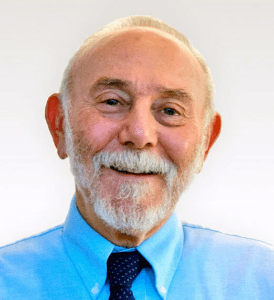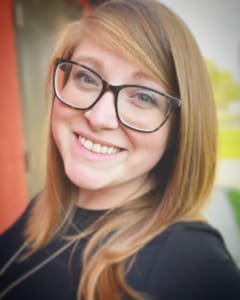This two-hour recorded webinar, originally recorded on Friday, October 18, 2024, details why fostering a sense of community is essential for an educational environment. Adult education programs are no different. As educators, we can further strengthen a sense of community for our adult students through a variety of ways, including offering supplemental clubs, inviting students to participate in events both inside and outside the classroom, and providing opportunities for them to engage with one another in a socio-academic environment. All of these have a positive impact in the classroom through increased retention and academic performance. The benefits extend beyond the classroom as well, boosting self-esteem, improving relationships among students and educators, and cultivating lifelong learning practices.
In this session, Krawiec will explain the benefits of building strong learning communities, especially through supplemental clubs, and share methods by which other organizations could implement similar strategies.
In this session, participants will learn about:
–
ABOUT THE FACILITATOR

Photo courtesy: Kara Kraweic
Kara Krawiec earned her Master of Arts degree in Literature from John Carroll University in Cleveland, OH. Upon graduation, she became an adjunct professor at several local colleges, teaching developmental reading and writing courses.
In 2017, she found Seeds of Literacy, an adult literacy non-profit in Cleveland, OH and served as the Site Coordinator for the organization’s East side location for seven years. Recently, she was promoted to Director of Student Success, helping students with college and career readiness. During her time at Seeds, she has focused not only on students’ individual needs, but the need for a strong learning community as well.
In 2018, Kara accepted the inaugural ProLiteracy Hero Award. In October 2023, she was awarded the Sharon Stubbe-Davis Outstanding Teacher Award. Kara’s dedication to creating a strong community extends beyond the classroom and has driven her to share her experience and expertise with her fellow educators by presenting at several state and national conferences. For the last two years, she has been presenting and facilitating small group coaching sessions as part of ProLiteracy’s Teacher Training Plus.
 Aaron Muttillo, Ph.D. has worked with children and adolescents in public, private, and non-profit settings for more than 20 years. He has extensive experience managing programs that serve students with diverse learning abilities. Aaron is a licensed school psychologist and holds a doctorate in urban education from Cleveland State University. Aaron is committed to creating educational settings that are research-based, dynamic, and joyful.
Aaron Muttillo, Ph.D. has worked with children and adolescents in public, private, and non-profit settings for more than 20 years. He has extensive experience managing programs that serve students with diverse learning abilities. Aaron is a licensed school psychologist and holds a doctorate in urban education from Cleveland State University. Aaron is committed to creating educational settings that are research-based, dynamic, and joyful.
 Dr. David J. Rosen president of Newsome Associates, a consulting firm in Boston, MA. He is a co-author of Guide for Design and Implementation of Hybrid–Flexible (HyFlex) Models in Adult Education and of two online guides: Blended Learning for the Adult Education Classroom and The What, Why Who and How of Blended Learning for Adult Basic Skills Learners . He was the author and editor of the Adult Literacy Education Journal’s “Technology Solutions for Adult Foundational Education Challenges” column and is the author of two blogs
Dr. David J. Rosen president of Newsome Associates, a consulting firm in Boston, MA. He is a co-author of Guide for Design and Implementation of Hybrid–Flexible (HyFlex) Models in Adult Education and of two online guides: Blended Learning for the Adult Education Classroom and The What, Why Who and How of Blended Learning for Adult Basic Skills Learners . He was the author and editor of the Adult Literacy Education Journal’s “Technology Solutions for Adult Foundational Education Challenges” column and is the author of two blogs 
 Carmine Stewart, PhD is the Director of the Aspire Program at the Neighborhood Centers Association in Cleveland, Ohio. Carmine has worked in adult literacy for eighteen years as a volunteer tutor, instructor, program coordinator, program director, instructional designer, professional developer, researcher, and content developer. She is passionate about helping beginning adult readers, and educating educators about learning and instruction. She dreams of eliminating illiteracy as a social problem and recently started a company “Ending Illiteracy” to extend her work assisting beginning readers beyond the adult literacy space. Carmine is the President and CEO of Aspire Consulting and Educational Services, conducting research, evaluation, professional development, executive coaching, and diversity training. Carmine is the President of the Ohio Association of Adult and Continuing Education (OAACE), the moderator for the United States Department of Education’s LINCS Diversity, Equity, and Inclusion Community, the Chair of the Association of Adult Literacy Professional Developers (AALPD), and a member of the NAACP Education Committee. Carmine earned her doctorate from Cleveland State University in August 2012 after defending her dissertation, “Teacher Preparation and Professional Development in Adult Literacy Education.”
Carmine Stewart, PhD is the Director of the Aspire Program at the Neighborhood Centers Association in Cleveland, Ohio. Carmine has worked in adult literacy for eighteen years as a volunteer tutor, instructor, program coordinator, program director, instructional designer, professional developer, researcher, and content developer. She is passionate about helping beginning adult readers, and educating educators about learning and instruction. She dreams of eliminating illiteracy as a social problem and recently started a company “Ending Illiteracy” to extend her work assisting beginning readers beyond the adult literacy space. Carmine is the President and CEO of Aspire Consulting and Educational Services, conducting research, evaluation, professional development, executive coaching, and diversity training. Carmine is the President of the Ohio Association of Adult and Continuing Education (OAACE), the moderator for the United States Department of Education’s LINCS Diversity, Equity, and Inclusion Community, the Chair of the Association of Adult Literacy Professional Developers (AALPD), and a member of the NAACP Education Committee. Carmine earned her doctorate from Cleveland State University in August 2012 after defending her dissertation, “Teacher Preparation and Professional Development in Adult Literacy Education.”